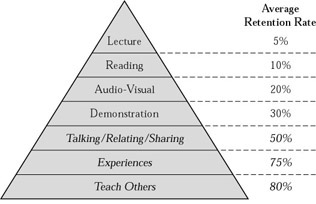Ineffective Leadership Development
Most organizations, of course, don’t look at leadership development from the perspective of these passages. Because of intense competition and the need to build a pipeline of leadership talent, many companies have recently begun to recognize the value of coaching and of conducting 360-degree assessments, as well as other self-awareness-building tools. But companies are still intensely results-driven. Leadership development tends to focus on outcomes, behaviors, competencies, cases, and skills. The reality of leadership is denied, including its self-questioning, its self-doubt, even its vulnerability. Every day, we encounter messages equating strong leadership with certainty, firmness, and the absence of self-reflection.
Explicitly or implicitly, most companies discourage people from talking about their problems or seeking help as they navigate some of the most important circumstances that affect their lives as individuals and as leaders. People may talk to their boss or coworker about the demands of work, company politics, conflict, unmet expectations, or inadequate performance. Or they may discuss specific issues that were pointed out during a performance review. But the discussions usually stay focused on action rather than feeling—on how they can solve the problem rather than face the underlying issues with which they’re wrestling.
It also seems counterintuitive to confess what they see as their failings to a boss or mentor. For instance, suppose Janet is a top talent recently recruited by her boss from another company. How easily does Janet tell the person who has invested a considerable amount of the company’s money and his own reputation in her that she is struggling with a new corporate culture and its policies? Figure 1.1 represents a “learning pyramid” (how people learn in an organization) graphically.

Figure 1.1: The Learning Pyramid.
Source: Jeanne Meister, Corporate Universities.
Similarly, in the senior ranks of most large companies today, discussion of significant personal experience remains a taboo. People experience all types of traumas in their lives that shape their outlook as well as their character and commitment. And they are expected to suppress discussion of these events at work. Only through coaching senior executives have we discovered how significant these personal passages can be and how much they affect, actually even shape, leadership behavior. Men especially feel as if they must tough it out and not allow trouble at home to spill over into their work. The result is that people sit on their feelings and separate their leadership role from their private self. Invariably, this chasm is projected into the work environment, creating a perception of inauthenticity and even distrust. For instance, many executives who go through a divorce deal with their pain and anger by resolving to work harder, travel more frequently, demand more from others, and take umbrage at perceived slights or criticism.
Working through the significant passages of life and career requires time and space for reflection, and companies generally don’t allow people this time and space. In most companies today, people aren’t allowed sabbaticals; they aren’t given the opportunity to take a step back and gain perspective. They simply don’t have a chance to think deeply about who they are and what they’re doing. Consequently, they persevere through these passages oblivious to their impact. If they fail at work, they deny culpability for the failure. If they feel terribly sad, they force themselves to be relentlessly upbeat, optimistic, and confident.
Although this may look like effective leadership, it comes with significant costs. When leaders aren’t in touch with who they are and what they feel, they are ineffective as leaders. They do not convey passion, power, or persuasion. They may reject feedback, fail to see the negative consequences of their actions, respond poorly to stress, or miss important relationship signals from others. And more often than not, all this gets taken out on their organizations. Perhaps most significantly, they don’t deal well with change. Only when people know themselves, acknowledge their experiences and feelings, and confront their humanity do they demonstrate resilience and the capacity to adapt.
EAN: 2147483647
Pages: 121